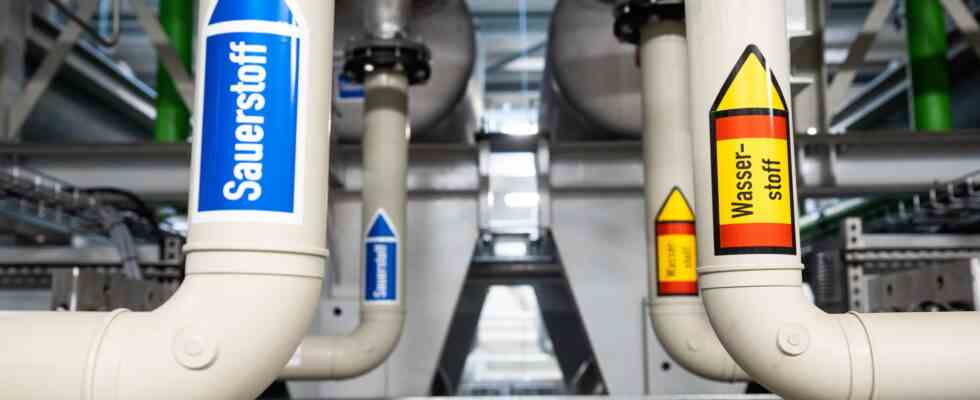Status: 01/10/2023 1:12 p.m
German companies have recently invested a lot in innovations related to renewable energies. According to the patent office, so many hydrogen patents have not been approved in any other EU country.
Nowhere else in Europe are so many patents relating to the future technology of hydrogen approved as in Germany. That’s according to a study by the European Patent Office (EPO) and the International Energy Agency (IEA) published today.
“Harnessing the potential of hydrogen is an essential part of Europe’s strategy to achieve carbon neutrality by 2050,” said EPA President António Campinos. However, “innovation in a variety of technologies is still urgently needed if hydrogen is to play an important role in reducing CO2 emissions and tackling climate change.” The EU countries as a whole and Japan are leaders in hydrogen patents.
“Green” hydrogen for the energy transition
Between 2011 and 2020, 24 percent of hydrogen patents were approved in Japan, 28 percent in the EU, and 20 percent in the US. While the EU and Japan increased over the ten years under review, US patent registrations declined over the period.
According to the study, most of the patents went to technologies for generating hydrogen. So far, hydrogen has been produced from natural gas. However, innovations are shifting “towards low-emission solutions, with the EU and Japan leading the way and the US losing ground,” according to the study. This so-called “green” hydrogen is particularly important for the energy transition in industry.
Linde, Siemens, Bosch and BASF leading
Many hydrogen patents are therefore held by companies in the automotive and chemical industries that focus on electrolysis and fuel cell technologies. According to the study, the leading companies also include the German groups Linde, Siemens, Bosch and BASF.
Japanese and Korean companies in the automotive industry in particular are applying for many patents – such as Toyota, Hyundai and Honda. In other industrial applications, the EPA and IEA still see too few innovations. The use of hydrogen is also suitable in heavy industry, in long-distance transport and in ships and airplanes.

